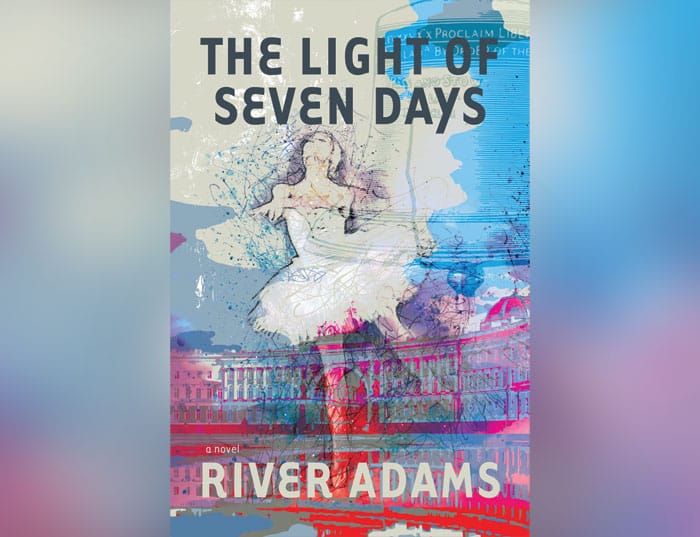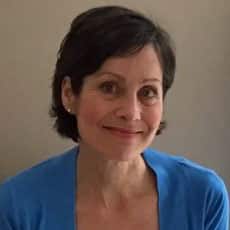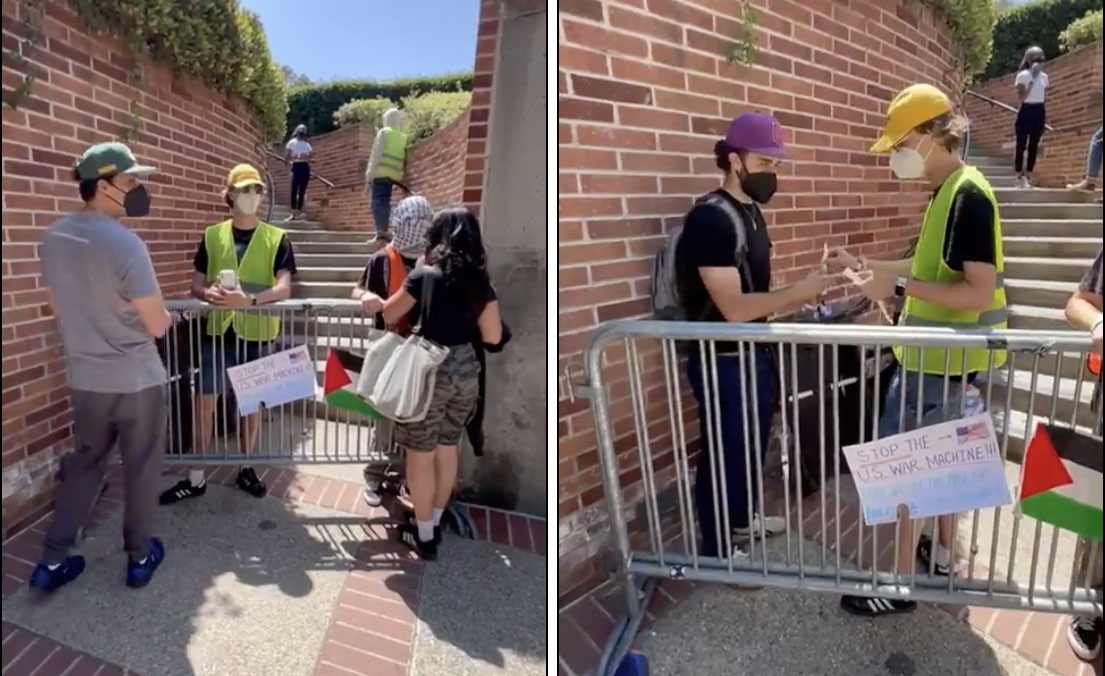
A gray mouse, a drum-loving Russian house spirit known as Barabashka, the constellation Orion and an émigrée Jewish ballerina from the former Soviet Union are on their way to an oncology appointment in Philadelphia in December 1997. The mouse has slid down Orion’s bowstring smelling “like Leningrad: wet granite, lilac, cabbage soup, the crease of Matthew’s neck, and Babby’s perfume”; Barabashka “is bobbing his head and drumming on his angular knees that are sticking up above his ears.” The first three are, of course, creatures of the ballerina’s mind, there to lend support as she meets the oncologist who will give her the diagnosis. But as she thinks: “What’s the worst that could happen? I die?”
Thus begins “The Light of Seven Days” (Delphinium Books, 2023), a compulsively readable, lyrical first novel by River Adams, a former concert pianist from the former Soviet Union. In the hands of a less talented writer, the subject matter—a seriously ill young ballerina; antisemitism in the Soviet Union; the shadow of Chernobyl; a refugee finding sanctuary in the United States—could be maudlin, didactic or smug. Adams almost entirely avoids these pitfalls by spicing the story with an acerbic eye and determined rejection of pathos. Narrative technique aside, there’s the glorious prose. At risk of fawning, it’s the kind of writing you read for the sheer delight of it.
Mouse, Barabashka and Orion abandon the ballerina—Dinah—soon after she is diagnosed with inoperable lung cancer, as she wanders an unfamiliar town in need of human comfort. She finds it in the form of a young rabbi, and although she feels acutely that as a nonbeliever she’s not a “real Jew,” Simon Levi is the man who holds her as she sobs, then soothes her with the prayer he’s been singing in advance of the next day’s Shabbat service.
From here the story rewinds to Dinah’s childhood in Leningrad in 1971. The cliffhanger might elicit a howl, but as is the case with all artfully wielded cliffhangers, the reader is helpless to do anything but read on. The chapters that follow are so engrossing that it’s only possible to enjoy the detour until the story catches up with 1997 Dinah and her fate is revealed.
Dinah’s childhood and youth are deftly painted. The central figures of Dinah’s life—the grandmother, Babby, who raises her after her parents die in an industrial accident; teachers and friends from the prestigious Vaganova ballet school she attends; Matthew, the almost impossibly wonderful Catholic fellow dancer who rescues her during an antisemitic assault —are depicted delicately and lovingly.
Leningrad itself also emerges as a flawed but beautiful character with a history that inspires Dinah. As someone who has thrilled to Shostakovich’s “Leningrad” symphony more times than I can count, I appreciated passages invoking the suffering of the city’s citizens in World War II. The story is careful to provide balance in describing the antisemitism that drives Dinah to emigrate. Thus, while one Party functionary dismisses Dinah’s concerns insisting “there is no anti-Semitism in the Soviet Union,” another character associated with the Party takes Dinah’s side and punishes the antisemite. A rounded picture of Soviet life emerges, defying caricature. As Dinah snaps at her new American family near the end—after they express astonishment that the Soviet Union had toy stores—they had hot water too, she tells them. Also violins, pillowcases and toilet paper.
As the Soviet Union collapses, the fascistic antisemitic group Memory begins holding huge rallies in the city. After a terrifying violent encounter with two of their members, Dinah decides it’s time to emigrate. She considers Israel, “the only place where there will never, ever be a pogrom” (haunting words today), but can’t abide the thought of a religious state. So America it must be, and soon she is on her way bearing a bunch of Leningrad poplars presented as a parting gift, heartbroken over the dear friends she will never see again.
As a refugee in Philadelphia Dinah is supported by a local synagogue, and although she’s grateful to them, her helplessness is degrading. She’s unable to understand basic English—“a soft, gooey mouthful of porridge”—and humiliated by mishaps such as an unfortunate encounter with her host’s dishwasher. As she adjusts, certain things drive her to distraction about Americans: They ask if you’re okay when you clearly are not; they promise to
call leaving her “waiting for them to call back, stubbornly, stupidly, again and again. Because where I come from, words mean what they mean.” Nothing is as it should be, not even the snobby indifferent American moon. “In the Russian Northwest,” narrator Dinah informs us, “the crescent gazes down on humanity. It cares.”
After a long miserable spell stocking shelves at a Russian grocery store, Dinah decides to find out where they keep ballet in Philadelphia and begins the arduous struggle of returning to what she loves. The new life she builds includes people from varying backgrounds, broadening her views both of American society and what it means to be Jewish. A frail elderly Holocaust survivor she befriends, a choreographer, responds to her questions about God and tells Dinah it doesn’t matter what she says: she is yiddishe maydeleh.
Some heavy-handedness seeps in when the novel explores American race relations. A scene in which Dinah quits a job she desperately needs because the boss is racist against black people should be inspiring but doesn’t quite ring true; the reader senses a well-intentioned sermon. Another jarring scene comes after Dinah protests the oncology office listing her race on a form as white. The medical secretary dutifully follows her instructions to put her down as “Middle Eastern,” but Dinah can see she’s bemused: “Who doesn’t want to be white?” (Some number of guilt-addled white Americans actually—it’s a thing here. See, e.g., Dolezal, Rachel.) But although the novel sometimes veers into didacticism in these sections, they provide much to think about. A critical passage comes near the end when Dinah says she loves America for giving her a home, and she hates America for making her a white person—which she knows, as a Jew who grew up among Russians, doesn’t reflect her true identity.
But my main beef about this book is that it ended. It kept me spellbound, and I hope this writer’s debut novel isn’t her last.
Kathleen Hayes is the author of ”Antisemitism and the Left: A Memoir.”























 More news and opinions than at a Shabbat dinner, right in your inbox.
More news and opinions than at a Shabbat dinner, right in your inbox.